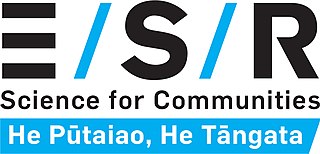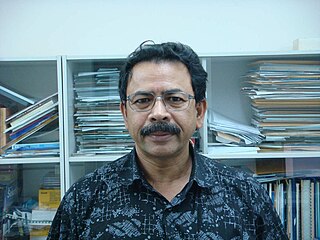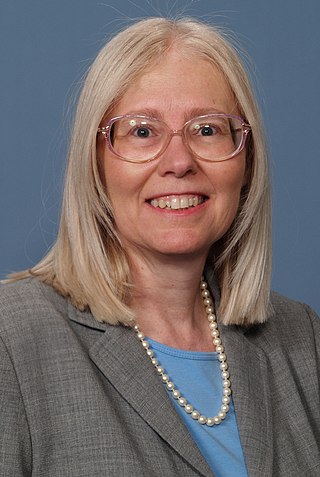
Listeria monocytogenes is the species of pathogenic bacteria that causes the infection listeriosis. It is a facultative anaerobic bacterium, capable of surviving in the presence or absence of oxygen. It can grow and reproduce inside the host's cells and is one of the most virulent foodborne pathogens. Twenty to thirty percent of foodborne listeriosis infections in high-risk individuals may be fatal. In the European Union, listeriosis continues an upward trend that began in 2008, causing 2,161 confirmed cases and 210 reported deaths in 2014, 16% more than in 2013. In the EU, listeriosis mortality rates also are higher than those of other foodborne pathogens. Responsible for an estimated 1,600 illnesses and 260 deaths in the United States annually, listeriosis ranks third in total number of deaths among foodborne bacterial pathogens, with fatality rates exceeding even Salmonella spp. and Clostridium botulinum.

Foodborne illness is any illness resulting from the contamination of food by pathogenic bacteria, viruses, or parasites, as well as prions, and toxins such as aflatoxins in peanuts, poisonous mushrooms, and various species of beans that have not been boiled for at least 10 minutes.

Listeria is a genus of bacteria that acts as an intracellular parasite in mammals. As of 2024, 28 species have been identified. The genus is named in honour of the British pioneer of sterile surgery Joseph Lister. Listeria species are Gram-positive, rod-shaped, and facultatively anaerobic, and do not produce endospores.
The National Microbiology Laboratory (NML) is part of the Public Health Agency of Canada (PHAC), the agency of the Government of Canada that is responsible for public health, health emergency preparedness and response, and infectious and chronic disease control and prevention.

Stanley "Stan" Falkow was an American microbiologist and a professor of microbiology at Georgetown University, University of Washington, and Stanford University School of Medicine. Falkow is known as the father of the field of molecular microbial pathogenesis. He formulated molecular Koch's postulates, which have guided the study of the microbial determinants of infectious diseases since the late 1980s. Falkow spent over 50 years uncovering molecular mechanisms of how bacteria cause disease and how to disarm them. Falkow also was one of the first scientists to investigate antimicrobial resistance, and presented his research extensively to scientific, government, and lay audiences explaining the spread of resistance from one organism to another, now known as horizontal gene transfer, and the implications of this phenomenon on our ability to combat infections in the future.
The International Association for Food Protection (IAFP), founded in 1911, is a non-profit association of food safety professionals based in Des Moines, Iowa. The organization claims a membership of over 3,000 members from 50 nations.

Food microbiology is the study of the microorganisms that inhabit, create, or contaminate food. This includes the study of microorganisms causing food spoilage; pathogens that may cause disease ; microbes used to produce fermented foods such as cheese, yogurt, bread, beer, and wine; and microbes with other useful roles, such as producing probiotics.

The Institute of Environmental Science and Research (ESR) is a New Zealand Crown Research Institute (CRI). Its purpose is to deliver scientific and research services to the public health, food safety, security and justice systems, and the environmental sector to improve the safety of, and contribute to the economic, environmental and social well-being of people and communities in New Zealand.
John Joseph Powers was an American food scientist who was involved in the creation of the Food Science Department at University of Georgia in Athens, GA. He also served as President of the Institute of Food Technologists (IFT) in 1986-87 and was Editor of the Journal of Food Science and Journal of Food Quality.

Shah Mohammad Faruque is a professor and the dean of the School of Environment and Life Sciences at Independent University Bangladesh (IUB). He is widely recognized for his research in Vibrio cholerae, the bacterium which causes the epidemic diarrhoeal disease Cholera. Among other positions, previously he was a professor at BRAC University; director of the Genomics Centre at the International Centre for Diarrhoeal Disease Research, Bangladesh (ICDDR,B), and formerly director of the Centre for Food and Water Borne Diseases in ICDDR,B. His areas of research interest include microbial genomics, bacteriophages, environmental microbiology, ecology, and evolution of bacterial pathogens, particularly those associated with waterborne and foodborne diseases. Faruque is primarily known for his work in genomics, epidemiology and ecology of the cholera pathogen, and its bacteriophages.
Catherine Wright Donnelly is Professor of Nutrition and Food Science at the University of Vermont, and the Editor-in-Chief of The Oxford Companion to Cheese, which won the 2017 James Beard Award for Reference and Scholarship.
Mary E. Lidstrom is a Professor of Microbiology at the University of Washington. She also holds the Frank Jungers Chair of Engineering, in the Department of Chemical Engineering. She currently is a fellow of the American Academy of Microbiology, a member of the National Academy of Sciences and serves on the editorial boards of the Journal of Bacteriology and FEMS Microbial Ecology.

Amy Olymbia Charkowski is an American plant pathologist and Professor of Plant Pathology at Colorado State University. She was elected Fellow of the American Association for the Advancement of Science in 2020.
Todd Robert Klaenhammer was an American food scientist and microbiologist who spent his 40-year career at North Carolina State University researching lactic acid bacteria. He was elected as a member of the National Academy of Sciences in 2001, the first food scientist to achieve that honor.
Michael McClelland is an academic. He is a professor of microbiology and genetics at the University of California, Irvine.
Lawrence Goodridge is a Canadian food scientist. He is the Leung Family Professor of Food Safety at the University of Guelph and Director of Guelph's Canadian Research Institute for Food Safety. Goodridge studies detection of and protection from food- and water-borne pathogens such as escherichia coli, salmonella and listeria. He uses wastewater testing to study the spread of COVID-19 and other diseases.
Larry R. Beuchat is a food protection researcher and emeritus professor at the University of Georgia in Griffin, Georgia. Beuchat's work focuses on the microbiology of plant-based foods, molds and pathogens, and food safety. He has authored five books and 530 journal articles. In 2008, the International Association for Food Protection (IAFP) recognized Beuchat's contributions to research by creating the annual Larry Beuchat Young Research Award. In 2013, Beuchat gave Penn State University a gift of $1 million to create an endowed chair in his name for a Professorship in Food Microbiology.
Edwin Michael Foster was an American microbiologist, specializing in food microbiology. He was the president of the American Society for Microbiology (ASM) in 1970.

Ann Marie McNamara is an American microbiologist and was formerly Vice President for Food Safety and Quality for the Supply Chain at US Foods. She has received a Distinguished Service Award from the United States Department of Agriculture, and received the International Association for Food Protection Fellow Award in 2012 and Food Safety Award in 2022.
James M. Jay (1927–2008) was a microbiologist who taught at Southern University and Wayne State University with a Ph.D. in bacteriology and biochemistry.







